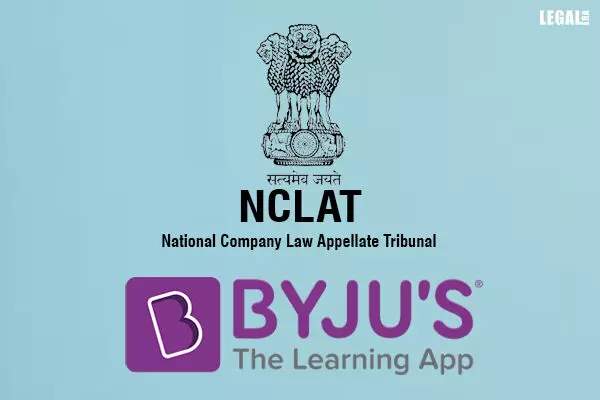- Home
- News
- Articles+
- Aerospace
- Artificial Intelligence
- Agriculture
- Alternate Dispute Resolution
- Arbitration & Mediation
- Banking and Finance
- Bankruptcy
- Book Review
- Bribery & Corruption
- Commercial Litigation
- Competition Law
- Conference Reports
- Consumer Products
- Contract
- Corporate Governance
- Corporate Law
- Covid-19
- Cryptocurrency
- Cybersecurity
- Data Protection
- Defence
- Digital Economy
- E-commerce
- Employment Law
- Energy and Natural Resources
- Entertainment and Sports Law
- Environmental Law
- Environmental, Social, and Governance
- Foreign Direct Investment
- Food and Beverage
- Gaming
- Health Care
- IBC Diaries
- In Focus
- Inclusion & Diversity
- Insurance Law
- Intellectual Property
- International Law
- IP & Tech Era
- Know the Law
- Labour Laws
- Law & Policy and Regulation
- Litigation
- Litigation Funding
- Manufacturing
- Mergers & Acquisitions
- NFTs
- Privacy
- Private Equity
- Project Finance
- Real Estate
- Risk and Compliance
- Student Corner
- Take On Board
- Tax
- Technology Media and Telecom
- Tributes
- Viewpoint
- Zoom In
- Law Firms
- In-House
- Rankings
- E-Magazine
- Legal Era TV
- Events
- Middle East
- Africa
- News
- Articles
- Aerospace
- Artificial Intelligence
- Agriculture
- Alternate Dispute Resolution
- Arbitration & Mediation
- Banking and Finance
- Bankruptcy
- Book Review
- Bribery & Corruption
- Commercial Litigation
- Competition Law
- Conference Reports
- Consumer Products
- Contract
- Corporate Governance
- Corporate Law
- Covid-19
- Cryptocurrency
- Cybersecurity
- Data Protection
- Defence
- Digital Economy
- E-commerce
- Employment Law
- Energy and Natural Resources
- Entertainment and Sports Law
- Environmental Law
- Environmental, Social, and Governance
- Foreign Direct Investment
- Food and Beverage
- Gaming
- Health Care
- IBC Diaries
- In Focus
- Inclusion & Diversity
- Insurance Law
- Intellectual Property
- International Law
- IP & Tech Era
- Know the Law
- Labour Laws
- Law & Policy and Regulation
- Litigation
- Litigation Funding
- Manufacturing
- Mergers & Acquisitions
- NFTs
- Privacy
- Private Equity
- Project Finance
- Real Estate
- Risk and Compliance
- Student Corner
- Take On Board
- Tax
- Technology Media and Telecom
- Tributes
- Viewpoint
- Zoom In
- Law Firms
- In-House
- Rankings
- E-Magazine
- Legal Era TV
- Events
- Middle East
- Africa
NCLAT Judicial Member Recuses From Byju's Case

NCLAT Judicial Member Recuses from Byju's Case
Justice (retd) Sharad Kumar Sharma, a judicial member of the National Company Law Appellate Tribunal (NCLAT) Chennai bench, recused himself on Thursday from hearing Riju Raveendran's appeal against the National Company Law Tribunal (NCLT) order. The NCLT had allowed Glas Trust and Aditya Birla Finance to be included in Byju’s Committee of Creditors (CoC).
Justice Sharma explained that his previous role as a lawyer for the Board of Control for Cricket in India (BCCI) meant he could not take up the case, as Byju's was admitted to the Corporate Insolvency Resolution Process (CIRP) on a plea filed by the BCCI. He stated, "I was not only conducting cases for BCCI, I was also closely associated with the board and the players."
Justice Sharma had also recused himself from hearing a similar appeal in July. The matter is now expected to be moved before NCLAT Chairperson, Justice (retd) Ashok Bhushan. Earlier, on January 29, the NCLT had initiated disciplinary proceedings against Pankaj Srivastava, the Resolution Professional (RP) for Byju’s, due to the exclusion of Glas Trust and Aditya Birla Finance from the CoC. The NCLT, in its order, criticized the RP’s conduct, stating that his actions were prejudicial to the interests of the CIRP and stakeholders, and deemed his behavior unfit for his role.
As a result, the tribunal directed the Insolvency and Bankruptcy Board of India (IBBI) to begin a disciplinary inquiry against the RP. The RP was also removed, and a new CoC was constituted with Glas Trust and Aditya Birla Finance, which was instructed to decide on the appointment of a new RP. All previous decisions made by the RP with the former CoC were quashed.
However, the NCLT has not yet ruled on the BCCI’s application to settle its dispute with Byju's.
Earlier, on October 23, the Supreme Court allowed an appeal by Glas Trust, a US-based financial creditor, against the NCLAT decision to halt insolvency proceedings against Byju’s parent company, Think & Learn. The apex court set aside the NCLAT order that had accepted a settlement between Byju Raveendran and the BCCI, and remitted the matter back to the NCLT for reconsideration of the settlement application.
Following this, Glas Trust and Aditya Birla Finance moved applications before the NCLT, claiming that the RP had recognized only one financial creditor, leading to a CoC with 100 percent voting rights from a single entity. Meanwhile, BCCI argued that its application under Section 12A of the Insolvency and Bankruptcy Code (IBC) for withdrawal of the insolvency proceedings must be addressed first.



